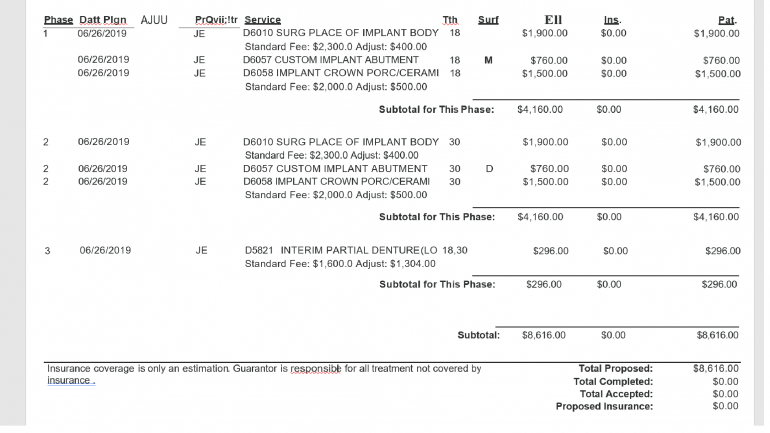
Dental Code D9993: Motivational Interviewing - A Comprehensive Approach to Improving Dental Health
Dental Code D9993, commonly referred to as "Dental Case Management - Motivational Interviewing," is a comprehensive approach to improving dental health outcomes. This code represents a specialized service provided by dental professionals to engage patients in a collaborative, patient-centered manner, with the ultimate goal of enhancing their oral health.
What does Dental Code D9993 Mean?
Dental Code D9993 is a designation used in the dental industry to identify a specific type of patient interaction and service. It is categorized under the broader "Unclassified" section of the Current Dental Terminology (CDT) code set, which is maintained by the American Dental Association (ADA).
The purpose of Dental Code D9993 is to recognize the importance of motivational interviewing techniques employed by dental professionals to foster improved oral health behaviors and outcomes in their patients. This code acknowledges the time and effort invested by dentists and hygienists in engaging patients in a collaborative, empathetic manner, with the aim of facilitating sustainable changes in their dental care habits.
Establishing a Rapport and Understanding the Patient's Perspective
The first step in the motivational interviewing process involves the dental professional taking the time to establish a rapport with the patient. This is crucial in creating an environment of trust and open communication. The dentist or hygienist will actively listen to the patient, seeking to understand their unique perspectives, concerns, and barriers to optimal oral health. By demonstrating empathy and a genuine interest in the patient's experiences, the dental professional can begin to build a collaborative partnership. This approach helps the patient feel heard and valued, laying the foundation for a productive and meaningful dialogue about their oral health.
Assessing the Patient's Readiness for Change
With a solid understanding of the patient's situation, the next step is to assess their readiness for change. This involves exploring the patient's current behaviors, their perceived importance of improving their oral health, and their confidence in their ability to make the necessary changes. The dental professional will use open-ended questions and reflective listening to guide the patient in examining their own motivations and barriers to change. This assessment helps the dental professional tailor their approach and provide the appropriate level of support and encouragement to facilitate the patient's willingness to take action.
Exploring the Patient's Motivation and Setting Specific Goals
Once the patient's readiness for change has been established, the dental professional will work collaboratively with the patient to explore their intrinsic motivations for improving their oral health. This may involve discussing the patient's personal values, long-term goals, and the potential benefits of making positive changes. Together, they will then set specific, achievable goals that align with the patient's priorities and preferences. By addressing the patient's unique motivations and setting mutually agreed-upon goals, the dental professional can help the patient develop a stronger sense of ownership and commitment to their oral health journey.
Developing a Customized Action Plan
Based on the patient's unique circumstances and goals, the dental professional will work with the patient to develop a customized action plan. This plan will outline the specific steps the patient will take to improve their oral health, such as establishing a consistent brushing and flossing routine, attending regular dental check-ups, or modifying dietary habits. The dental professional will provide guidance and support, ensuring that the action plan is realistic and tailored to the patient's needs. By involving the patient in the planning process, the dental professional can foster a sense of shared responsibility and increase the likelihood of successful implementation.
Providing Ongoing Encouragement and Support
Throughout the process, the dental professional will maintain regular contact with the patient, offering encouragement, feedback, and support. This may involve scheduling follow-up appointments, providing educational resources, or celebrating small successes along the way. The goal is to foster a sense of partnership and accountability, empowering the patient to take an active role in their oral health journey. By continuously reinforcing the patient's progress and offering guidance, the dental professional can help the patient stay motivated and overcome any obstacles they may encounter.
Summary Dental Code D9993
Dental Code D9993, Dental Case Management - Motivational Interviewing, represents a comprehensive approach to improving dental health outcomes. By engaging patients in a collaborative, patient-centered manner, dental professionals can help individuals overcome barriers, build intrinsic motivation, and develop sustainable oral health habits. This code recognizes the time and effort invested by dentists and hygienists in fostering positive change and partnering with patients to achieve optimal oral health.
Interested in learning more about Dental Code D9993, how it can benefit your dental practice and how you can save money on different dental treatments? Visit Dr. BestPrice, the leading dental auction platform, to explore innovative solutions and connect with top dental professionals.
